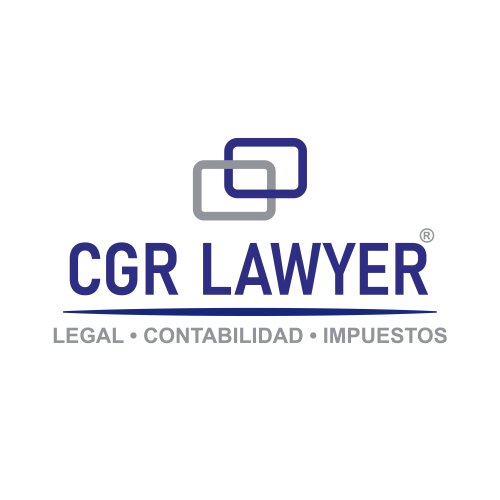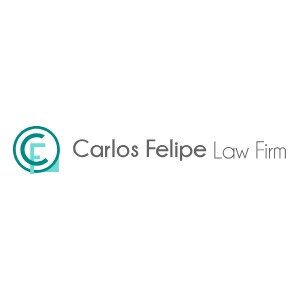Best Legal Document Lawyers in Dominican Republic
Share your needs with us, get contacted by law firms.
Free. Takes 2 min.
Or refine your search by selecting a city:
List of the best lawyers in Dominican Republic
About Legal Document Law in Dominican Republic
Legal document law in the Dominican Republic encompasses the processes, rules, and regulations regarding the drafting, formalization, and authentication of documents used within legal frameworks. This includes contracts, notarized documents, wills, property deeds, and other official records. The legal system in the Dominican Republic follows a civil law tradition, heavily influenced by the French and Spanish systems, which requires formal documentation for many legal transactions to ensure their validity and enforceability.
Why You May Need a Lawyer
There are numerous situations where securing the services of a lawyer is advisable when dealing with legal documents in the Dominican Republic. These include:
- Drafting contracts for business transactions to ensure all parties are legally protected.
- Preparing property deeds when buying or selling real estate to avoid future disputes.
- Creating a will to ensure your assets are distributed according to your wishes after your death.
- Notarizing documents to officially recognize them in legal settings.
- Interpreting complex legal jargon to understand rights and obligations under Dominican law.
- Disputing a legal document or its provisions in court or through arbitration.
Local Laws Overview
The Dominican Republic has several key laws pertinent to legal documents, including:
- Civil Code: Influences contractual obligations, personal rights, and civil procedures involving legal documents.
- Notarial Law: Governs the procedures for document notarization and the responsibilities of notaries.
- Registration Law: Details the requirements for the registration of certain legal documents, such as property deeds, to ensure public record consistency.
- Commercial Code: Applies to commercial contracts and other business-related legal documents.
Frequently Asked Questions
What is the importance of notarizing a legal document in the Dominican Republic?
Notarization is crucial for validating the authenticity of signatures and the date of execution, making the document legally binding and admissible in court.
Can legal documents be written in any language?
Legal documents must be in Spanish or officially translated to be recognized by Dominican authorities.
How can I verify the authenticity of a notary in the Dominican Republic?
Authenticity can be verified through the Superior Land Court (Tribunal Superior de Tierras), which maintains records of authorized notaries.
How long does it typically take to process a property deed?
Processing a property deed can take anywhere from a few weeks to several months, depending on the complexity of the transaction and governmental backlog.
Is it necessary to have a lawyer when creating a will?
While not obligatory, it is highly recommended to use a lawyer to ensure the will complies with legal standards and to prevent disputes among heirs.
What are the consequences of failing to register a legal document?
Unregistered documents might not be enforceable or recognized legally, which can lead to disputes or nullification of certain rights or obligations.
What should be included in a commercial contract?
It should include clear descriptions of products/services, terms and conditions, payment details, conflict resolution mechanisms, and signatures of involved parties.
Are electronically signed documents legal in the Dominican Republic?
Yes, electronic signatures are recognized under certain conditions; however, the legal framework is still evolving and may not cover all document types.
What types of identification are required for document authentication?
Typically, a valid government-issued ID such as a passport or Dominican cedula is needed for document authentication.
How can I file a dispute over a legal document?
A dispute can be filed through the Civil Court or relevant arbitration forums, often necessitating legal representation during proceedings.
Additional Resources
The following resources may prove helpful for those needing further assistance with legal documents in the Dominican Republic:
- Dominican Bar Association: Offers listings of certified lawyers across various legal fields.
- Office of the Attorney General: Provides public records and official guidance on legal document processes.
- Ministry of Justice: Offers resources for understanding the legal system and accessing essential services.
Next Steps
If you require legal assistance with documents in the Dominican Republic, consider taking the following steps:
- Identify your specific legal needs and gather all relevant documentation.
- Consult with a certified lawyer experienced in Dominican law to obtain professional advice.
- Ensure all documents are compliant with local legal standards and, if necessary, have them notarized.
- Register applicable documents with the appropriate governmental bodies to safeguard your legal rights.
Taking these steps can help ensure that your legal documents are prepared, authenticated, and enforceable according to Dominican law.
Lawzana helps you find the best lawyers and law firms in Dominican Republic through a curated and pre-screened list of qualified legal professionals. Our platform offers rankings and detailed profiles of attorneys and law firms, allowing you to compare based on practice areas, including Legal Document, experience, and client feedback.
Each profile includes a description of the firm's areas of practice, client reviews, team members and partners, year of establishment, spoken languages, office locations, contact information, social media presence, and any published articles or resources. Most firms on our platform speak English and are experienced in both local and international legal matters.
Get a quote from top-rated law firms in Dominican Republic — quickly, securely, and without unnecessary hassle.
Disclaimer:
The information provided on this page is for general informational purposes only and does not constitute legal advice. While we strive to ensure the accuracy and relevance of the content, legal information may change over time, and interpretations of the law can vary. You should always consult with a qualified legal professional for advice specific to your situation.
We disclaim all liability for actions taken or not taken based on the content of this page. If you believe any information is incorrect or outdated, please contact us, and we will review and update it where appropriate.
Browse legal document law firms by city in Dominican Republic
Refine your search by selecting a city.
















